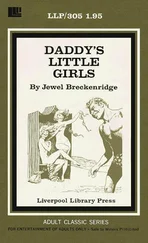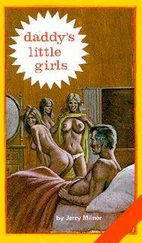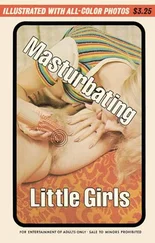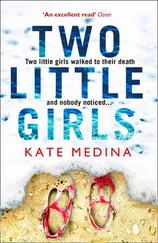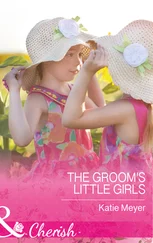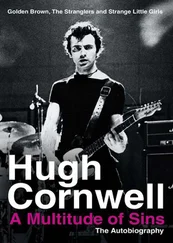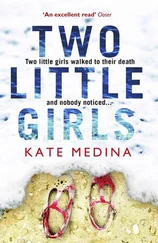Rachel Bennett - Little Girls Tell Tales
Здесь есть возможность читать онлайн «Rachel Bennett - Little Girls Tell Tales» — ознакомительный отрывок электронной книги совершенно бесплатно, а после прочтения отрывка купить полную версию. В некоторых случаях можно слушать аудио, скачать через торрент в формате fb2 и присутствует краткое содержание. Жанр: unrecognised, на английском языке. Описание произведения, (предисловие) а так же отзывы посетителей доступны на портале библиотеки ЛибКат.
- Название:Little Girls Tell Tales
- Автор:
- Жанр:
- Год:неизвестен
- ISBN:нет данных
- Рейтинг книги:3 / 5. Голосов: 1
-
Избранное:Добавить в избранное
- Отзывы:
-
Ваша оценка:
- 60
- 1
- 2
- 3
- 4
- 5
Little Girls Tell Tales: краткое содержание, описание и аннотация
Предлагаем к чтению аннотацию, описание, краткое содержание или предисловие (зависит от того, что написал сам автор книги «Little Girls Tell Tales»). Если вы не нашли необходимую информацию о книге — напишите в комментариях, мы постараемся отыскать её.
Little Girls Tell Tales — читать онлайн ознакомительный отрывок
Ниже представлен текст книги, разбитый по страницам. Система сохранения места последней прочитанной страницы, позволяет с удобством читать онлайн бесплатно книгу «Little Girls Tell Tales», без необходимости каждый раз заново искать на чём Вы остановились. Поставьте закладку, и сможете в любой момент перейти на страницу, на которой закончили чтение.
Интервал:
Закладка:
‘She’s got a joey,’ Beth whispered.
Beth’s eyes were much sharper than mine. I had to squint before I made out the tiny woolly head poking from the mother’s pouch. I wouldn’t have seen it at all except it was restlessly shifting around.
‘Neat,’ I said.
Beth flashed another smile at me.
We kept walking. I glanced back a few times but the mother wallaby was quickly lost to sight. Still, I couldn’t shake the feeling that others were watching us.
The track stepped down off the remains of the wall and wound off through the trees. I kept my eyes on my feet. The path was reassuringly solid, but the ground on either side was muddy and soft. My blue wellies left perfect imprints. On either side of me, standing pools of water gave off a sweet-stagnant smell. The air was heavy and damp with humidity. I looked up. Above the treetops there was nothing but the round bowl of the sky, dotted with clouds. It made me dizzy. Better to concentrate on my feet.
It was maybe five or ten minutes later when I raised my eyes and realised I was alone.
I paused to listen. Dallin would still be talking, I knew. His voice had been a constant drone throughout the summer holidays, half comfort and half annoyance. But now I couldn’t hear him. The only noise was soft birdsong, water dripping from leaves, and the murmur of the wind in the trees.
Dallin and Beth must’ve been somewhere ahead. I’d fallen behind a little, then a little more, until they were out of sight. But soon enough they’d realise I was being slow, and they’d wait for me.
I kept walking.
It didn’t occur to me that I might be lost. The wetlands weren’t that big or sprawling. Probably they were no bigger than the plantation of pine trees near Douglas where me and Dad went out for walks. And I’d never managed to lose myself there. But maybe that was because the plantation was on the slope of a hill. The thousand or so pine trees in their regimented straight lines drew clear pathways back to safety. Even if I got turned around there, I could walk downhill until I found the road.
The curraghs were different. Everything was flat, with no landmarks. There were plenty of paths – dozens of them – but many led in circles or disappeared into bogs.
I walked for some time, thinking – if I was thinking at all – that I was bound to catch up with Beth and Dallin soon. I figured I would come around a clump of trees and there they’d be, waiting for me with a sarcastic remark. But I kept walking and I remained alone.
In the mud off to one side I spotted several elongated, parallel footprints. Wallaby tracks. They led off along an ill-defined trail that headed in what I thought was the direction of the road. I stepped off the path to follow the trail, even though it soon became little more than a line of slightly firmer ground between the stagnant mud puddles.
A few broken chunks of stone protruded from the earth here and there. The remains of a wall, marking the edge of someone’s land? Or maybe part of a sheep-pen, which would lead me round in a loose circle. Perhaps part of someone’s house. There were no clues. Everything had been swallowed by the trees.
At that point I began to feel frightened. Not because I was alone or possibly lost – neither were new experiences for me – but by the evidence of history around me; of time reclaiming the land. A hundred years ago there’d been people living here, but now there was nothing left, except the faint tracery of the walls they’d built. It shocked me to think that time would eventually sweep away the fragments of my own life, the crooked trees tangling over everything that made me unique and memorable.
I had the sudden urge to drop to my knees and dig down through the mud. Buried somewhere must be a few lost remnants of the people who’d gone before.
Later – weeks, months, years later – I would piece the day back together from fragments of memory, looking for signs and augurs I should’ve spotted. There must’ve been something to warn me my life was about to change. Was it significant, the way the wind dropped to an eerie calm, or how the wild geese chattered somewhere off in the distance, or how I spotted those clumps of bogbean – that beautiful, delicate white flower Mum had told me to look out for – growing in sudden abundance in an overwise unremarkable clearing?
It was the flowers that made me pause. The trail I’d been following had petered out to nothing. Ahead, the ground looked boggier, like it might not take my weight. I stopped. The bogbean flowers on their slender stems nodded in the gentle breeze. They poked up between a tangle of sticks in a muddy pond. The sticks were whitish grey, stripped of their bark. I thought of the wallabies that’d chewed Mum’s fruit trees.
I studied the jutting curve of the sticks where they emerged from the water. It took me a surprisingly long time to recognise it as a ribcage.
I’d never seen one in real life, of course. But I’d seen the plastic skeleton at the St John Ambulance headquarters, where my schoolfriend Amanda went to Badgers. I’d spent a long, bored time fiddling with the artificial joints of the skeleton, nicknamed Boney M, while I waited for Amanda to finish training so her mum could give us both a lift home.
What I was confronted with now didn’t look much like Boney M. The ribcage, if that’s what it was, was squashed and malformed, with half the ribs bent at the wrong angle. The bones were discoloured to the same greenish grey as the lichen on the trees. An arm – a possible arm, I told myself – was loosely attached at the shoulder by tatters of greyish material. The hands could be under the water, tucked up beneath the chest. Sleeping. Peaceful.
I brushed aside a few bogbean stems and found what might be the skull. It was partly submerged. Above the water was a smooth curve, part of an eye socket, and the edge of the jaw, complete with a few grimy teeth. The lower jaw had fallen open, or fallen away. One of the molars at the back had a filling in it, grey metal, like the ones my aunt showed when she laughed too loud.
I straightened up, suddenly dizzy. It was a person. I’d found a person.
An unpleasant tingle of surprise worked its way through my stomach. What should I do? In movies, if someone discovered a skeleton, they screamed, or cried, or threw up, or ran away. None of those reactions seemed justified right then, in that sun-dappled clearing, with the birds calling from nearby trees. This wasn’t someone who had died yesterday or the day before or even a week ago. No one was looking for them. And neither was it someone alive and hurt who needed me to run and get help.
This person had been dead a long, long time, perhaps even as long as the farmland had been flooded. Nothing about the scene made me want to scream or cry. There was no blood, no guts, not even a particularly bad smell – or at least, no worse than the rotted-vegetable smell of the mud itself.
Instead of fear or disgust, I felt only sadness. Who was this person? How come they were here? Had they worked in these ancient fields, before the land was reclaimed by trees?
I took a step closer and my boot sank deep into the mud. I jerked back in a hurry. The mud sucked at my boot as I pulled it loose. I stumbled back, breathless.
The first sting of fear hit me then. This was such a lonely place for someone to die. What if the person had been just like me, a little bit lost and a little bit abandoned, and she’d stumbled into the mud and couldn’t get out?
If I got stuck, would anyone hear my shouting? How long would Dallin and Beth search for me? What if I was never found?
I eyed the mud. The divot my boot had made was already filling with scummy water. How deep did the mud go? Could it swallow me whole, as fast as sinking sand? Would I disappear forever, like Mum had warned, held close in a freezing, muddy embrace?
Читать дальшеИнтервал:
Закладка:
Похожие книги на «Little Girls Tell Tales»
Представляем Вашему вниманию похожие книги на «Little Girls Tell Tales» списком для выбора. Мы отобрали схожую по названию и смыслу литературу в надежде предоставить читателям больше вариантов отыскать новые, интересные, ещё непрочитанные произведения.
Обсуждение, отзывы о книге «Little Girls Tell Tales» и просто собственные мнения читателей. Оставьте ваши комментарии, напишите, что Вы думаете о произведении, его смысле или главных героях. Укажите что конкретно понравилось, а что нет, и почему Вы так считаете.
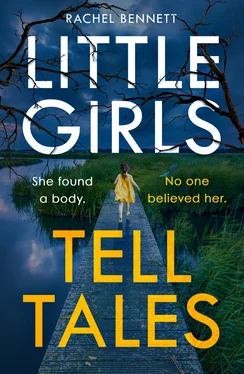
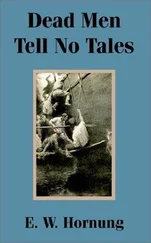
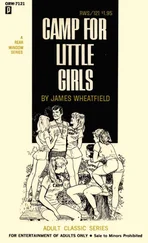
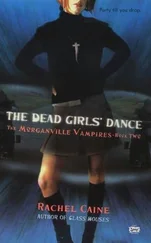
![Ally Carter - [Gallagher Girls 01] I'd Tell You I Love You But Then I'd Have to Kill You](/books/262179/ally-carter-gallagher-girls-01-i-d-tell-you-i-lo-thumb.webp)
